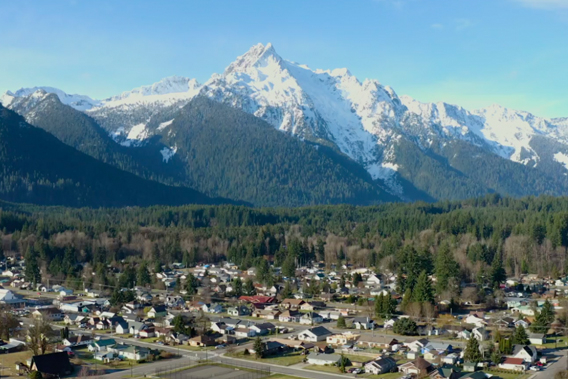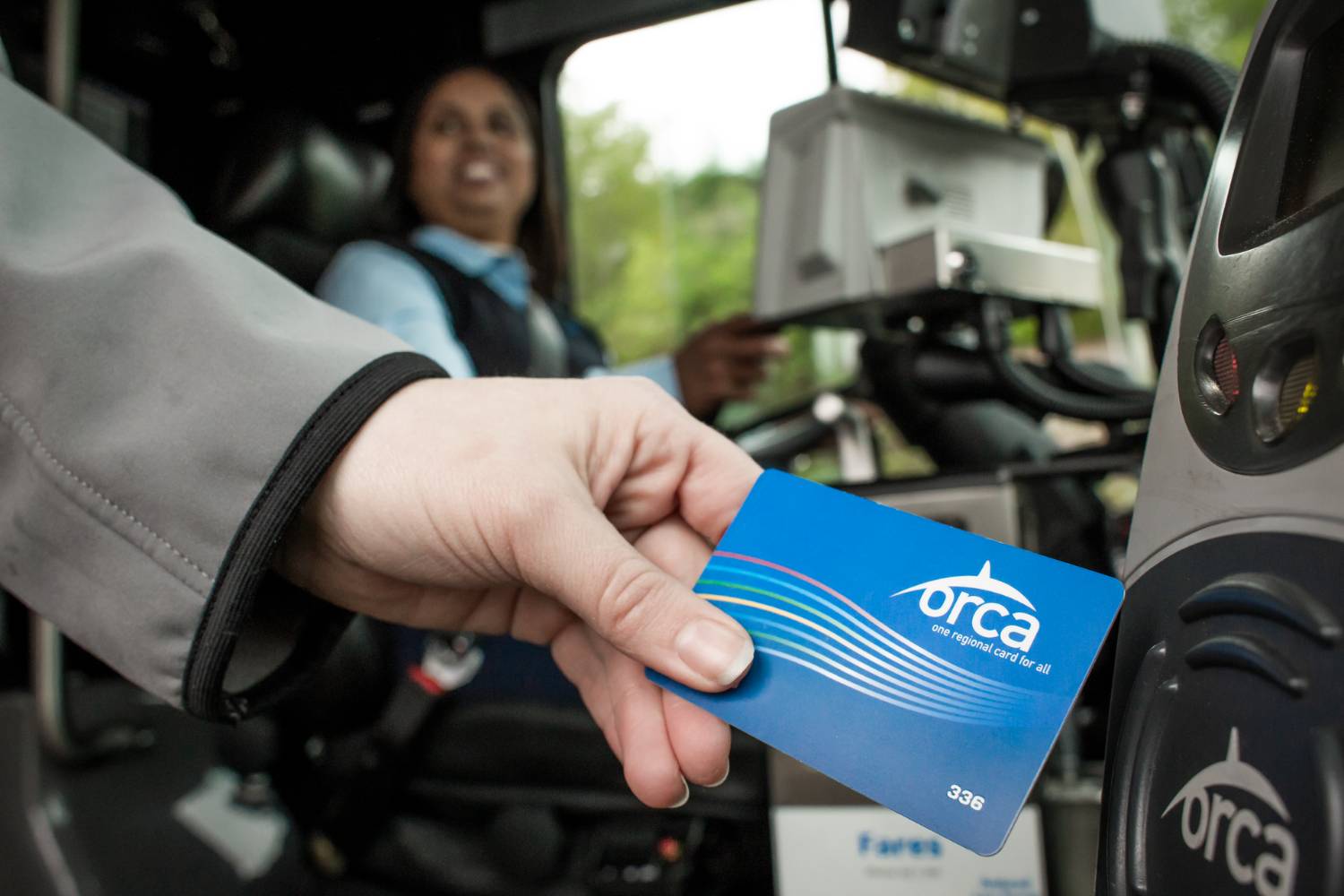Getting around Darrington with Community Transit

Community Transit is here to get you where you want to go. We are proud to be a part of the Darrington community — we live here, ride here, and drive here. Wherever you need to go in Darrington, feel good about how you get there.
About Darrington
Darrington is a small mountain town in the foothills of the Cascades, located where two rivers once joined in a valley between the Sauk and the Stillaguamish rivers. The Sauk-Suiattle tribe were the first people to settle in the valley and today their tribe headquarters are located in Darrington. Darrington is connected to nearby areas by State Route 530, which runs along the two rivers towards the city of Arlington, located 30 miles to the west.
Town is home to a variety of small logging and lumber companies as well as Hampton Lumber’s state-of-the-art mill. Darrington’s location near the Mt. Baker-Snoqualmie National Forest and scenic rivers make it a popular destination for outdoor recreation.
People traveling to and from the area can ride from Community Transit buses along Route 230, which connects people to the neighboring Smokey Point Transit Center in Arlington. DART paratransit service and Vanpool are also options. The Sauk-Suiattle DC (Darrington-Concrete) Direct Shuttle Bus Service, a program operated by the Sauk-Suiattle Indian Tribe, also offers public transportation to residents of the reservation, Darrington, and surrounding communities.
Spanning over 27 miles between the City of Arlington and the Town of Darrington, the Whitehorse Regional Trail follows the path of the former BNSF railroad through the North Stillaguamish River Valley, offering a scenic travel option for people hiking, biking, and riding horseback.
Popular Destinations
Feedback wanted: Community Transit proposes eliminating commuter bus fare

Changes are coming to Community Transit as light rail reaches Snohomish County later this year. You’ll have more travel options in Snohomish County, more bus service, and improved regional transit connections.
As a part of these coming changes, Community Transit is proposing to eliminate commuter bus fare, starting on Sept. 1. Public comment is open now through May 3 for people who would like to comment on this proposed fare change.
Why remove commuter fares?
Currently, riders are charged $4.25 for commuter routes that travel to Northgate and downtown Seattle. When light rail begins operating in Snohomish County later this year, Community Transit will stop operating those routes so there is no need for the $4.25 fare category.
If the fare change is approved by the Community Transit Board of Directors, then all standard adult fares would be $2.50 for local bus, Swift, Zip Alderwood Shuttle, and DART paratransit services. Other Community Transit fares would remain the same.
Cost savings for riders going to Seattle
The removal of the commuter fare category would also mean cost savings for people traveling to Seattle from Snohomish County. This is because with the elimination of Community Transit’s commuter fare and Sound Transit’s approved plans to change Link fares to a flat $3, riders from Snohomish County would go from paying $4.25 each way to $3 each way with an ORCA card. For a five-day commute, that would result in $12.50 savings a week and $50 savings a month.
Why are commuter routes being eliminated?
Starting Sept. 14, Community Transit buses will no longer serve Northgate and downtown Seattle. Route 424 will continue to operate until at least 2025, but will move to the standard $2.50 fare. Instead, riders will connect to Link light rail at Lynnwood, Mountlake Terrace, or Shoreline to complete their trips to Seattle. Some Sound Transit buses will continue to serve Seattle.
We want to hear from you!
As Community Transit plans for fare changes, we want to hear from you by May 3. The following are ways to submit comments:
- Survey: communitytransit.org/fareproposal
- Email: engage@commtrans.org
- Social: Facebook (/communitytransit), Twitter (@MyCommTrans)
- Mail: Community Transit, Administrative Office, 2312 W Casino Rd, Everett, WA 98204
- Call: 425-353-RIDE (7433)
- Public hearing: Community Transit Board Meeting: 3 p.m., May 2 (To comment, sign up at communitytransit.org/how-to-attend-a-meeting). The meeting will be in a hybrid format, with in-person attendance and an online option available. Visit our Board of Directors page and click on Upcoming Meetings for meeting materials and information on how to participate or listen.
Title VI analysis
Community Transit conducted a federally mandated Title VI analysis which found that the proposed fare change does not have a disparate effect on minority or low-income populations. Proposed fare changes and the Title VI analysis can be found at communitytransit.org/fareproposalinfo.
